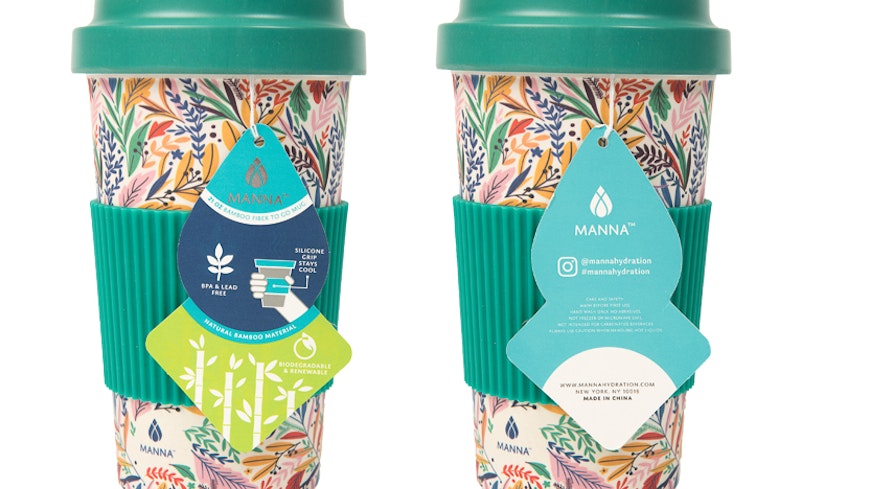Coffee lovers wanting to swap single-use takeaway cups for a “greener” option may be tempted by claims reusable “bamboo” mugs are better for the planet.
On this page
The Manna Hydration Bamboo Fibre Mug, which we bought at Mitre 10, was tagged as “biodegradable & renewable” and made from “natural bamboo material”.
However, bamboo wasn’t the only substance used to make these cups – they also contained plastic. Bragging the cups are “biodegradable” also risks misleading consumers about what they’re buying.
What they're made from
The plant matter used in the cups is powdered bamboo or bamboo fibre. It’s held together with a binding agent such as melamine-formaldehyde resin (MFR) – a thermoplastic (see “Is melanine safe?”).

The Manna Hydration Bamboo Fibre Mug, bought at Mitre 10, was tagged as “biodegradable & renewable” and made from “natural bamboo material”.
But from the labels on most cups, you wouldn’t know MFR was in them. We found cups at Farmers, Mitre 10, Stevens, T2 and The Warehouse advertised as either “bamboo” or “made from bamboo fibre”. Briscoes’ website stated its Prestige cup was made from “mainly bamboo powder”. However, neither melamine nor any other binding agent was mentioned.
Several stores – Briscoes, Farmers, Mitre 10 and The Warehouse – also claimed their bamboo cups were “biodegradable”. But melamine isn’t going to decompose anytime soon – and none of the companies could provide us with evidence to back their claims.
After we questioned the stores, Mitre 10 removed its bamboo cups from sale. It said it had asked its supplier for evidence to substantiate the cup claims: “At this stage, we are not satisfied with the documentation we have on hand.”
The Warehouse said it didn’t have “appropriate verification” from its supplier to back up its biodegradability claim, so it would drop the statement.
Briscoes and Farmers have also dropped their claims.
Is melamine safe?
Provided they've been manufactured correctly and aren’t used at high temperatures, melamine products are considered safe to use – but poorly made items can contaminate food and drink with melamine and formaldehyde.
Melamine is suspected of causing bladder and kidney diseases, while formaldehyde can irritate the skin, respiratory system and eyes, as well as cause cancer in the nose and throat area when inhaled.
In July, German consumer watchdog Stiftung Warentest tested 12 bamboo cups. Seven cups leached higher-than-acceptable levels of melamine and formaldehyde, with “cheaper” products proving especially porous. Chemical migration increased when the items were subjected to high temperatures (70ºC) for extended periods, reiterating why melamine products should not be used to microwave food or drink.
Of the retailers we contacted, Stevens and Briscoes were the only stores to provide us with laboratory reports to show their bamboo-based products had been tested and complied with the European Union’s acceptable migration levels for melamine and formaldehyde. Stevens said it intended to relabel its cups to list melamine as an ingredient. Briscoes' website stated its 300ml bamboo travel mug was "microwave safe" but it's now removed the claim.

We can't do this without you.
Consumer NZ is independent and not-for-profit. To help us get a fairer deal for all New Zealand consumers, you can make a donation. We’ll use your contribution to investigate consumer issues and work for positive change.